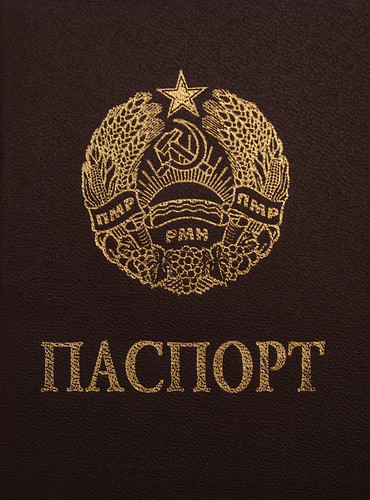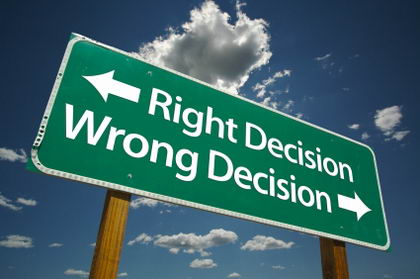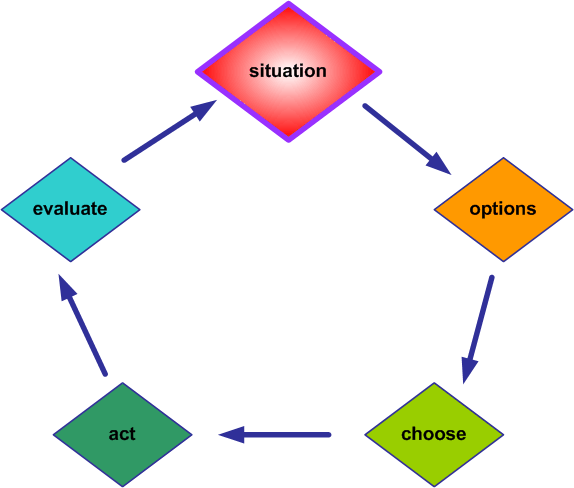 Free movement is one fundamental human rights not only in one's own country but also abroad. While speaking about Balkans I earlier have highlighted (e.g. “Forgotten Refugees – West Balkans") the situation of Serb refugees or IDPs (Internally Displaced Persons) who can not return to their original homes in Croatia, Bosnia-Herzegovina or Kosovo. The fear is restricting also movement of Serbs living behind barbed wire in Kosovo enclaves. Besides refugees and IDPs also ordinary citizens can have restricted movement depending which passport they hold.
Free movement is one fundamental human rights not only in one's own country but also abroad. While speaking about Balkans I earlier have highlighted (e.g. “Forgotten Refugees – West Balkans") the situation of Serb refugees or IDPs (Internally Displaced Persons) who can not return to their original homes in Croatia, Bosnia-Herzegovina or Kosovo. The fear is restricting also movement of Serbs living behind barbed wire in Kosovo enclaves. Besides refugees and IDPs also ordinary citizens can have restricted movement depending which passport they hold.
Visa restrictions play an important role in controlling the movement of foreign nationals across borders. They are also an expression of the relationships between individual nations, and generally reflect the relations and status of a country within the international community of nations.
 Now a discussion paper made by European Stability Initiative (ESI) poppet to my eyes describing visa regulations in Kosovo with quite surprising outcome – people from all ethnic groups living in province can go visa free only to five countries while even people with Afghanistan passport (ranked as country which has the least travel freedom in the world) can go to 22 countries visa free. And this happens in Europe, in region which is on the road to EU membership, in province where EU has squandered billions of Euro to build international standards.
Now a discussion paper made by European Stability Initiative (ESI) poppet to my eyes describing visa regulations in Kosovo with quite surprising outcome – people from all ethnic groups living in province can go visa free only to five countries while even people with Afghanistan passport (ranked as country which has the least travel freedom in the world) can go to 22 countries visa free. And this happens in Europe, in region which is on the road to EU membership, in province where EU has squandered billions of Euro to build international standards.
On the table below I have collected data from Henley & Partners 'Visa Restriction Index' 2008. I included rankings of top and lowest three ranks, ranks of Balkan and BRIC countries. From ESI paper I added Kosovo province (Kosovo is part of Serbia according UNSC resolution 1244/99, the current status can be described as international protectorate).
| Rank | Passport of country | Visa free access no |
| 1 | Denmark | 157 |
| 2 | Finland, Ireland, Portugal | 156 |
| 3 | Belgium, Germany, Sweden, USA | 155 |
| 14 | Slovenia | 139 |
| 23 | Brazil | 122 |
| 25 | Bulgaria | 116 |
| 26 | Romania | 115 |
| 29 | Croatia | 108 |
| 53 | Russia | 60 |
| 62 | Serbia, Montenegro | 50 |
| 72 | Bosnia-Herzegovina | 40 |
| 75 | India | 37 |
| 76 | Albania | 36 |
| 79 | China | 33 |
| 87 | Iran | 25 |
| 88 | Iraq | 23 |
| 89 | Afghanistan | 22 |
| 90 | Kosovo | 5 |
In February 2008 Kosovo declared independence. France was the first EU member state to recognize the new state, followed by Germany, Great Britain, and all but five other EU member states (Cyprus, Greece, Romania, Slovakia and Spain). The new Kosovo passport, first issued by the Kosovo Government in July 2008, is currently one of the least useful travel documents ever designed. Its holders can travel to only 5 countries visa free: neighbouring Albania, Montenegro and Macedonia, Turkey, and Haiti.
Latest developments
In my earlier article “EU's visa freedom dividing Balkans” I described how “European perspective” is applied different ways in West Balkans. Briefly of the five regional states involved in the visa-liberalisation process, Serbia, Macedonia, and Montenegro have been approved for visa-free travel within the EU, as of January 2010. Bosnia and Herzegovina and Albania have been told that they might receive EU visa-free status later. Kosovo, on the other hand, has not been included in the process, as five of the 27 members of the EU have not recognised Kosovo’s independence.
In December 2008 the EU dispatched a Rule of Law Mission (EULEX) to Kosovo. It currently fields more than 1,622 EU and 1,021 local staff (total: 2,643). With an annual budget of over Euro 200 million it is the biggest EU mission of its kind ever launched. Its objective is to assist the development of Kosovo's security and judicial institutions.
Schengen process, unilateral declaration of independence and EULEX raised expectations among Kosovo Albanians. However after civil war and these events Kosovo anyway remains one of the most isolated places on earth. While looking backwards the near history of region the change is quite drastic - some 20 years ago citizens of Yugoslavia could travel relatively free anywhere.
In August 2008 Serbia started issuing biometric passports, an EU roadmap requirement. A lucky 7,141 Kosovars received one. But in 2009 the European Commission asked Serbia to stop the issuance to Kosovars until a specific 'Coordination Directorate' at the Ministry of the Interior in Belgrade would be set up as the only body authorised to provide Kosovo residents with passports. Since the issuing authority is always mentioned in passports, this would make the passports of Kosovo residents distinguishable – and exclude their holders from visa free travel. In June 2009 Serbia thus stopped issuing biometric passports to Kosovo residents (including Kosovo Serbs).
Today's outcome is the Commission proposal to add Kosovo to the Schengen 'Black List' as a territory on whose status the EU cannot yet agree (i.e. under UN Security Council resolution 1244), next to the Palestinian Authority and Taiwan. And the Commission did not even mention the possibility of a visa liberalisation process for Kosovo.
More from my main source ESI document.
Some other peculiarities
The wording of the European Commission proposal of 15 July 2009 stresses that visa free travel for Kosovars constitutes an overwhelming security risk. In the words of the Commission:
Kosovo under UNSCR 1244/99 shall be added to Annex I of Regulation so that persons residing in Kosovo shall be submitted to the visa requirement. This proposal is motivated exclusively by objectively determined security concerns regarding in particular the potential for illegal migration stemming from and transiting through Kosovo under UNSCR 1244/1999. This is without prejudice to the current status of Kosovo under UNSCR 1244/1999.
This 'security risk' idea, supported by some influential member states, would explain the Commission's insistence on withholding visa free travel even from those Kosovo citizens equipped with new biometric Serbian passports – as opposed to withholding it from holders of Serbian biometric passports from any other country in the world (such as Bosnia and Herzegovina).
One other peculiarity related to country status visa freedom connection is the case of Taiwan. At this very moment, a serious visa dialogue between the European Commission and the Republic of Taiwan is under way. Taiwan has not been recognized by so much as a single EU member state. And yet, this is not seen as an obstacle. In mentioned Henley & Partners 'Visa Restriction Index' 2008 Taiwan has rank 54 and county's passport holders can travel visa free to 59 countries.
Bosnia-Herzegovina is another strange example in Balkans. While most Bosnian Croats already have Croatian passports (with access to 108 countries) and since Republika Srpska residents can apply for and obtain Serbian passports (with access to 50 countries now and more 2010 after White list implementation), the Bosniaks with passport of Bosnia-Herzegovina can travel visa free only to 40 countries and will so far stay in Black list.
 In Europe Pridnestrovie - aka Transnistria aka Pridnestrovskaia Moldavskaia Respublica (PMR) – may be a country which passport has less use abroad than Kosovo passport as no country has recognised its independence. The region has practically been independent – if not recognized – state already over 17 years. Transdnistria has all statehood elements, more developed than e.g. Kosovo's, its economy is relatively good with export to over 100 countries and it can manage without UN seat. The bright side of story is the fact that people living in Pridnestrovie however can use their Russian or Moldovan passports for travels abroad. More about Kosovo-Pridnestrovie comparison one may find from my article “Transnistria follow-up”.
In Europe Pridnestrovie - aka Transnistria aka Pridnestrovskaia Moldavskaia Respublica (PMR) – may be a country which passport has less use abroad than Kosovo passport as no country has recognised its independence. The region has practically been independent – if not recognized – state already over 17 years. Transdnistria has all statehood elements, more developed than e.g. Kosovo's, its economy is relatively good with export to over 100 countries and it can manage without UN seat. The bright side of story is the fact that people living in Pridnestrovie however can use their Russian or Moldovan passports for travels abroad. More about Kosovo-Pridnestrovie comparison one may find from my article “Transnistria follow-up”.
Bottom line
In my earlier article “EU's visa freedom dividing Balkans” I concluded following:
There is also well based arguments that the EU is isolating three mainly Muslim European states/regions – Albania, BiH and Kosovo – and Turkey as some in the EU fear the presence of such a large, Muslim community inside traditionally Christian Europe. Of course EU denies political aspects and highlights only the technical ones but from Balkan perspective the impression can differ.
Visa restrictions also are reflecting the political situation of the time e.g. some 20 years ago citizens of Yugoslavia could travel relatively free, but the breakup wars changed situation completely.
In Bosnia-Herzegovina the EU’s message now weakens already non-existent national identity and opposes EU’s earlier multi-ethnic ideals. In Kosovo some NGOs send a letter to EU where they state that Kosovo`s exclusion from the visa-liberalisation process threatens to transform Kosovo “into a ghetto without any way out”.
EU and international community have guided and supervised these regions towards “European standards”. So has EU failed with this task as those countries without outside supervision are getting visa-freedom earlier?

Sources of this article:
ESI Discussion Paper: Isolating Kosovo? Kosovo vs Afghanistan 5:22
European Stability Initiative (ESI) is a non-profit research and policy institute, created in recognition of the need for independent, in-depth analysis of the complex issues involved in promoting stability and prosperity in Europe. ESI was founded in June 1999 by a multi-national group of practitioners and analysts with extensive experience in the regions it studied.
Henley & Partners has analyzed the visa regulations of all the countries and territories in the world. It has created an index which ranks countries according to the visa-free access its citizens enjoy to other countries.
My earlier article “Visa rank and the western Balkans”






 An
important consequence of the Balkan Wars was also the mass expulsion of
Muslims from the Balkans. Already beginning in the mid-19th century,
hundreds of thousands of Muslims were expelled or forced to flee from
the Caucasus and the Balkans as a result of the Russo-Turkish wars and
the conflicts in the Balkans. Muslim society in the empire was incensed
by this flood of refugees and overcome by a desire for revenge.
An
important consequence of the Balkan Wars was also the mass expulsion of
Muslims from the Balkans. Already beginning in the mid-19th century,
hundreds of thousands of Muslims were expelled or forced to flee from
the Caucasus and the Balkans as a result of the Russo-Turkish wars and
the conflicts in the Balkans. Muslim society in the empire was incensed
by this flood of refugees and overcome by a desire for revenge.

 Turkey
has consistently denied responsibility for the genocide, which is
sometimes referred to as the Armenian Holocaust. Azerbaijan, being in
deep strategic alliance with Turkey and in a state of war against
Armenia, shares the position of Turkey.
Turkey
has consistently denied responsibility for the genocide, which is
sometimes referred to as the Armenian Holocaust. Azerbaijan, being in
deep strategic alliance with Turkey and in a state of war against
Armenia, shares the position of Turkey.
 The
political situation in region is quite confusing. Armenia accounts for
the Russian military base. Russia sponsors Armenia, actively supports it
in many issues one can say that the relations between Moscow and
Yerevan have reached the level of allied partnership. It is clear that
Russia would not want to lose such an important ally in such a serious
and potentially explosive geopolitical region. Azerbaijan has close
military ties with NATO member Turkey. Iran, which borders both, is the
biggest wildcard; although Shiite Muslim like Azerbaijan, Tehran reviles
Baku because of Azerbaijan’s secular orientation, its close ties with
Israel, and fears about separatist tendencies among Iran’s large Azeri
minority. Iran, ironically, has far better ties with Christian Armenia.
Turkey closed its border with Armenia in 1993.
The
political situation in region is quite confusing. Armenia accounts for
the Russian military base. Russia sponsors Armenia, actively supports it
in many issues one can say that the relations between Moscow and
Yerevan have reached the level of allied partnership. It is clear that
Russia would not want to lose such an important ally in such a serious
and potentially explosive geopolitical region. Azerbaijan has close
military ties with NATO member Turkey. Iran, which borders both, is the
biggest wildcard; although Shiite Muslim like Azerbaijan, Tehran reviles
Baku because of Azerbaijan’s secular orientation, its close ties with
Israel, and fears about separatist tendencies among Iran’s large Azeri
minority. Iran, ironically, has far better ties with Christian Armenia.
Turkey closed its border with Armenia in 1993. 


 Former US Foreign secretary Henry Kissinger once asked what's the EU's phone number. Few months ago EU finally started to act according the Lisbon Treaty with promises that it would make the EU more streamlined in reaching objective that the EU should speak with one voice. Seems it didn't.
Former US Foreign secretary Henry Kissinger once asked what's the EU's phone number. Few months ago EU finally started to act according the Lisbon Treaty with promises that it would make the EU more streamlined in reaching objective that the EU should speak with one voice. Seems it didn't. So even three EU presidents to one summit? Is this the last f
So even three EU presidents to one summit? Is this the last f

 Before last EU Parliament elections I was debated the following idea in my mind and in my
Before last EU Parliament elections I was debated the following idea in my mind and in my 

 Free movement is one fundamental human rights not only in one's own country but also abroad. While speaking about Balkans I earlier have highlighted (e.g. “
Free movement is one fundamental human rights not only in one's own country but also abroad. While speaking about Balkans I earlier have highlighted (e.g. “ Now a
Now a  In Europe
In Europe 